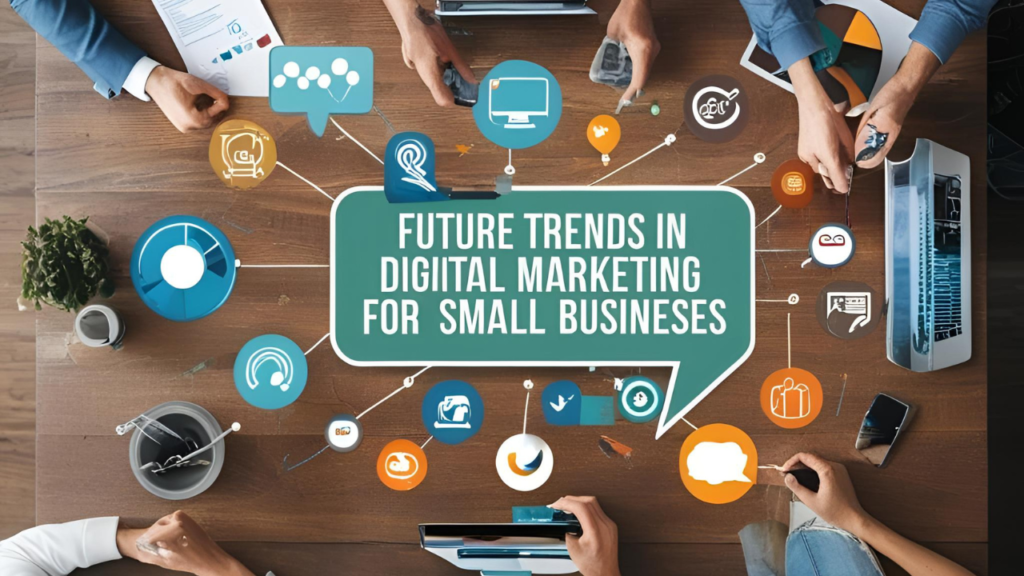Running a Small Local Business comes with a unique set of challenges, from attracting customers to managing day-to-day operations efficiently. Many local businesses struggle to compete with larger companies due to limited resources, outdated marketing techniques, and a lack of digital presence.
Statistics show that 56% of small local business struggle with online visibility (Forbes). This is where digital marketing plays a critical role in leveling the playing field. By embracing digital tools, small businesses can reach a larger audience, improve efficiency, and increase profitability.
This guide explores eight common small business challenges and how digital marketing provides effective solutions to overcome them.

Benefits of Digital Marketing for Small Local Business
Adopting a strong digital marketing strategy can help businesses overcome obstacles and position themselves for growth. Here’s why every local business should invest in digital transformation.
1. Overcome Common Growth Obstacles
Digital marketing helps businesses expand their reach, attract new customers, and enhance brand visibility. Whether through social media, search engine optimization (SEO), or email marketing, digital tools help small businesses compete with larger brands.
2. Improve Efficiency and Customer Engagement
Automated tools like chatbots, AI-driven analytics, and CRM software streamline operations and enhance customer interactions. This enables businesses to respond faster to inquiries, manage online reviews, and improve customer experience.
3. Cost-Effective and Measurable Results
Unlike traditional marketing, digital marketing allows businesses to track performance, analyze customer behavior, and optimize campaigns based on real-time data. This leads to better return on investment (ROI) and smarter business decisions.

8 Common Problems Small Local Business Face and How Digital Marketing Solves Them
1. Low Online Visibility
The Problem: Many small businesses rely on word-of-mouth marketing and struggle to be found online.
The Solution: Digital marketing improves online presence through SEO, local listings, and Google Business Profile optimization. Appearing on the first page of Google increases brand credibility and attracts more local customers.
2. Limited Marketing Budget
The Problem: Traditional advertising methods like TV, radio, and print ads are expensive and often ineffective for small businesses.
The Solution: Digital marketing provides cost-effective advertising through social media, pay-per-click (PPC) ads, and email marketing, allowing small businesses to reach a targeted audience with a lower budget.
3. Difficulty in Generating Leads and Sales
The Problem: Many local businesses rely on foot traffic or outdated marketing techniques that no longer drive sales.
The Solution: Lead generation strategies such as content marketing, landing pages, and social media ads help businesses attract and convert potential customers efficiently.
4. Competition with Larger Brands
The Problem: Big corporations dominate the market with strong brand recognition and larger budgets.
The Solution: Digital marketing allows small businesses to compete through niche targeting, hyperlocal advertising, and personalized customer engagement that large companies often overlook.
5. Poor Customer Engagement and Retention
The Problem: Without an online presence, businesses struggle to maintain customer relationships.
The Solution: Social media, email newsletters, and customer relationship management (CRM) tools enable businesses to engage with customers, provide personalized offers, and encourage repeat purchases.
6. Lack of Data-Driven Insights
The Problem: Small businesses often make marketing decisions based on intuition rather than data.
The Solution: Digital tools like Google Analytics, Facebook Insights, and email tracking provide valuable insights into customer behavior, allowing businesses to refine their marketing strategies for better results.
7. Inability to Adapt to Changing Consumer Behavior
The Problem: Traditional businesses struggle to keep up with changing customer expectations and online shopping trends.
The Solution: Digital marketing ensures businesses stay relevant by using eCommerce solutions, social media trends, and AI-driven marketing strategies to meet customer demands.
8. Managing Online Reviews and Reputation
The Problem: Negative online reviews can harm a business’s reputation and deter potential customers.
The Solution: Reputation management strategies, such as monitoring reviews, responding to feedback, and leveraging positive testimonials, help businesses build trust and maintain a strong brand image.

Future Trends in Digital Marketing for Small Businesses Challenges
As digital marketing evolves, small businesses must stay ahead of industry trends to remain competitive. Here are five key trends shaping the future of digital marketing for local businesses.
1. Increased Automation and AI-Powered Marketing
AI-driven tools are revolutionizing digital marketing by automating chatbots, email marketing, and customer segmentation. Small businesses can now engage with customers in real-time without additional labor costs.
2. Digital-First Business Models
As online shopping continues to grow, businesses must invest in eCommerce platforms, mobile apps, and digital payment solutions to remain competitive.
3. Hyperlocal Marketing and Geo-Targeting
Businesses can leverage location-based marketing to target customers in specific neighborhoods using Google Ads, Facebook Local Ads, and mobile push notifications.
4. Voice Search Optimization
With the rise of voice assistants like Alexa and Google Assistant, businesses must optimize their content for voice search queries and conversational keywords.
5. Video Marketing and Interactive Content
Consumers engage more with video content, interactive posts, and live streaming. Small businesses should integrate video marketing into their strategy to improve engagement and conversion rates.

Conclusion
Small businesses face numerous challenges, but digital marketing provides cost-effective and scalable solutions to overcome them. By leveraging SEO, social media, automation, and reputation management, businesses can increase visibility, attract more customers, and boost profitability.
With future trends like AI-driven marketing, hyperlocal advertising, and digital-first strategies, small businesses must stay ahead of the curve to remain competitive. Now is the time to embrace digital transformation and turn business challenges into growth opportunities!
